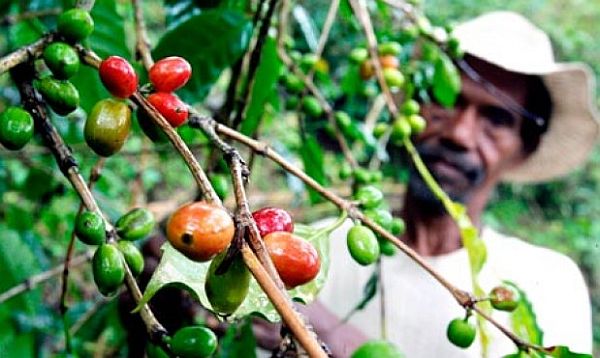 |
| The region responsible for more than a fifth of the world's arabica coffee crop is suffering its worst-ever outbreak of roya, but the upcoming 2014/2015 harvesting season should provide significant relief. |
Coffee farmers in Mexico and Central America should see output rise by at least 10 percent next season as the mostly arabica growing region begins to recover from a devastating fungal outbreak, the top regional coffee buyer for Starbucks Corp said last week.
The region responsible for more than a fifth of the world's arabica coffee crop is suffering its worst-ever outbreak of roya, or coffee leaf rust, but the upcoming 2014/2015 harvesting season should provide significant relief. "A very conservative (estimate) is 10 percent more production in Mexico and Central America next season," said Alfredo Nuno, green coffee buyer for Mexico and Central America for US-based Starbucks, the world's largest coffee chain.
If coffee output from Mexico and Central America rises by a tenth, production will total 17.6 million 60-kg bags during the 2014/2015 season, according to data from the London-based International Coffee Organisation. Output would rise by 1.6 million bags, compared with estimated output of nearly 16 million bags during the current season.
Nuno said lower output across the region caused by damage from roya has not led to a breach of contracts between the company and its suppliers, nor has it forced the chain to source its beans from other countries. "The areas that have been hardest hit are mostly in lower altitudes where the coffee grown doesn't meet Starbucks's quality standards," he said, adding that his visits to farms in the region provide encouraging signs.
"Compared to last year, the situation is less terrible," he said. "Flowering (of coffee trees) has been good, and it seems like next year will be even better." Nuno pointed to Colombia, the world's largest producer of washed arabica beans, which experienced a similarly devastating roya outbreak beginning around 2008, but only this year is output expected to reach pre-roya levels of about 11 million bags. He said poorer, less-organised Central American coffee-producing nations will likely take longer to recover.
One exception, he said, could be Honduras, Central America's top producer, where output from new coffee plantations "is so big that it could offset the losses." Nuno said that over the next few months Starbucks franchises in Mexico, the chain's largest market in Latin America, will fund the donation of roya-resistant trees and other support to struggling farmers in Chiapas state, Mexico's top coffee producer. While proceeds from select coffee sales at Starbucks's Mexican cafes from June through December will be used to help approximately 2,500 Chiapas farmers, Nuno declined to say how much the company expects to spend on the assistance.
Original Story
No comments:
Post a Comment